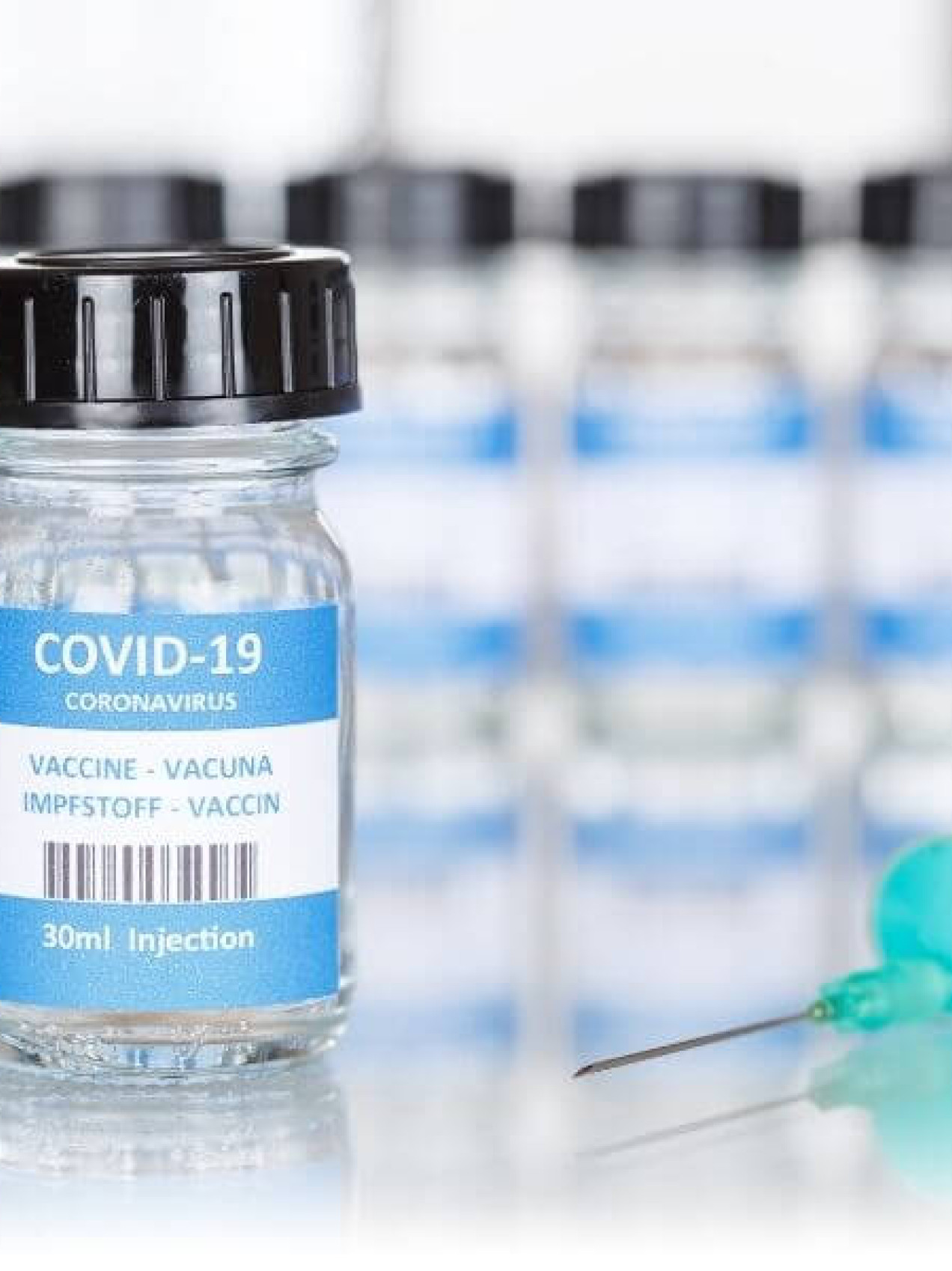Updated on 03.05.2023
On May 1, 2023, the U.S. government officially announced the end of the Corona vaccination requirement for travelers to the United States. This means that one of the last pandemic-related regulations will fall - and not only for many international travelers.
Share article:

Die Biden-Harris-Administration hat am 1. Mai 2023 angekündigt, die COVID-19-Impfpflicht für Bundesbedienstete, staatliche Auftragnehmer und internationale Reisende am 11. Mai 2023 zu beenden. Gleichzeitig endet an diesem Tag der im Jahr 2020 wegen der COVID-19-Pandemie ausgerufene Gesundheitsnotstand.
Die USA waren eines der ersten Länder, die pandemiebedingt ab November 2021 für Reisende einen vollständigen COVID-19 Impfnachweis einführten. Andere Länder wie Kanada, Australien und Neuseeland hatten frühzeitig bereits ähnliche Maßnahmen ergriffen, um ihre Grenzen vor dem Virus zu schützen, diese hatten jedoch die Impfnachweispflicht bereits früher wieder aufgehoben. Trotz großen Drucks seitens der Wirtschaft, Politik und der Tourismusbranche, blieb die Biden-Regierung jedoch ihrem Kurs treu. Entfiel im Juni 2022 noch die Testpflicht bei der Einreise, fällt jetzt auch noch die letzte Corona-Reisehürde
Auch das US-Gesundheitsministerium (HHS) und das US-Heimatschutzministerium (Department of Homeland Security, DHS) werden nun damit beginnen, ihre Impfvorschriften in bestimmten Bereichen anzupassen.
„Während Impfungen weiterhin eines der wichtigsten Instrumente zur Förderung der Gesundheit und Sicherheit von Arbeitnehmern und der Effizienz von Arbeitsplätzen sind, befinden wir uns nun in einer anderen Phase, in der diese Maßnahmen nicht mehr erforderlich sind“, hieß es in einer offiziellen Erklärung des Weißen Hauses.
Die Aufhebung der Impfpflicht soll dazu beitragen, die Einschränkungen im internationalen Reiseverkehr zu verringern. Bisher waren COVID-19 Impfnachweise für viele Reisende Voraussetzung für die Einreise in die USA. Ausnahmen für ungeimpfte Personenkreise waren stark reglementiert.

Ab dem 12. Mai 2023 können wieder uneingeschränkt alle Personen (COVID-19 geimpft oder ungeimpft) in die Vereinigten Staaten einreisen - auf dem Land-, See- oder Luftweg, egal ob mit Visum oder im Rahmen der visumfreien Einreise (ESTA). Bitte beachten Sie jedoch, dass die grundsätzlichen einwanderungsrechtlichen Einreisebestimmungen selbstredend weiterhin in Kraft sind.
Die Entscheidung, den Impfnachweis für Reisende in die USA abzuschaffen, wurde nach reiflicher Überlegung und unter Berücksichtigung der aktuellen COVID-19-Situation getroffen. Die US-Regierung ist der Ansicht, dass die derzeitigen Impf- und Testanforderungen für Reisende ausreichend sind, um die öffentliche Gesundheit zu schützen und, dass aufgrund der hohen Impfraten weltweit, die Gefahr neuer Virusvarianten sinkt.
Einzelheiten zur Umsetzung der Aufhebung der Impfpflicht werden in den kommenden Tagen bekannt gegeben.
Als im Januar 2020 die ersten Berichte über ein neuartiges Coronavirus aus China auftauchten, ahnte niemand, welche verheerende Welle die Krankheit in den USA auslösen würde. Die Krankheit breitete sich rasch aus, und es dauerte nicht lange, bis auch in den USA die ersten Infektionen auftraten, was innerhalb kürzester Zeit zu einer der schwersten Gesundheitskrisen in der Geschichte der USA führte.
Im März 2020 erklärte die Weltgesundheitsorganisation die Ausbreitung von COVID-19 zu einer globalen Pandemie.
Die US-Regierung reagierte schnell mit Reisebeschränkungen, Grenzschließungen und Empfehlungen zur sozialen Distanzierung. Weitere Maßnahmen waren die Schließung von Schulen und Betrieben, Ausgangssperren und eine Maskenpflicht – je nach US-Bundesstaat jedoch sehr unterschiedlich. Der Lockdown hatte schwerwiegende wirtschaftliche Folgen.
Die Infektionen hatten zwischen 2020 und 2021 immer wieder wellenartige Ausbrüche mit stark ansteigenden Zahlen, die zu einer Überlastung des gesamten Krankensystems führten. Nach jeder Maßnahmenlockerung der US-Bundesstaaten kam es zum Teil zu noch verheerenderen Infektionswellen.
Im Dezember 2020 wurden die ersten Impfstoffe zugelassen und die US-Regierung startete eine der größten Impfkampagnen der Geschichte. Die USA haben bisher mehr als 270 Millionen Impfdosen verabreicht, was dazu beigetragen hat, dass die COVID-19-Todesfälle seit Januar 2021 um 95 Prozent und die Krankenhauseinweisungen um fast 91 Prozent zurückgegangen sind.
Zwischen Dezember 2021 und Februar 2022 kam es zu der in den USA größten COVID-19-Infektionswelle mit bis zu 6 Millionen Neuinfektionen pro Woche.
Drei Jahre nach dem Ausbruch der Pandemie kehren die Vereinigten Staaten nunmehr mit der Beendigung des Gesundheitsnotstands zur Normalität zurück.

Während die Aufhebung der letzten Corona-Maßnahmen von vielen Kreisen als ein längst überfälliger Schritt bewertet wird, gibt es auch mögliche Risiken, die mit der Beendigung der Impfnachweispflicht verbunden sind.
Dies könnte zu einem Anstieg der COVID-19-Fälle führen, insbesondere in US-Gebieten mit niedrigen Impfraten. Ohne Impfnachweis könnte es auch schwieriger werden, Corona-Infektionen in bestimmten Bereichen wie dem amerikanischen Gesundheits- und Bildungswesen zu kontrollieren.
Weitaus größere Auswirkungen als die Änderung der Reisebestimmungen könnte allerdings die Aufhebung des Notfallstatus in seiner Gesamtheit auf die US-Bevölkerung haben – insbesondere für den Krankenversicherungssektor:
Viele Amerikaner:innen, die während der Pandemie ihre Arbeitsplätze verloren haben, könnten ihren Zugang zu einer erschwinglichen Krankenversicherung verlieren. Die Arbeitslosigkeit ist in den USA immer noch hoch und viele Menschen sind auf eine bezahlbare Krankenversicherung angewiesen, die während der Pandemie durch den Affordable Care Act (ACA, Obamacare) oder Medicaid zur Verfügung gestellt wurde. Während der Pandemie war es beispielsweise für Menschen mit Vorerkrankungen, die ein höheres Risiko für schwere COVID-19-Verläufe haben, einfacher, Versicherungen zu erhalten. Ohne den Notfallstatus könnte es für diese Menschen jedoch schwieriger werden.
Die Abschaffung des Impfnachweises für Reisende dürfte sich besonders positiv auf die Reisebranche auswirken, die von den Einschränkungen der Pandemie stark betroffen war. Reisende, die zuvor aufgrund von Impfbeschränkungen nicht in die USA reisen konnten, haben mit dem passenden Visum oder ESTA nun ab dem 12. Mai 2023 endlich wieder die Möglichkeit, ihre Familien und Freunde zu besuchen, Urlaubsziele zu erkunden oder auch Geschäftstermine wahrzunehmen.
Insgesamt ist die Abschaffung des Impfnachweises für Reisende in die USA eine positive Entwicklung für die Reisebranche und Reisende weltweit.

We advise you on the choice of the appropriate visa category and take over the complete processing for you or your company.

Date:
Wir und unsere Partner nutzen Cookies, um personenbezogene Daten wie z.B. Browsing-Daten zu speichern und abzurufen, um z.B. Inhalte und Werbung bereitzustellen und zu personalisieren sowie die Verwendung der Website zu analysieren und das Benutzererlebnis zu verbessern. Sie erfahren mehr über die Zwecke, für welche wir und unsere Partner Cookies einsetzen, wenn Sie unten auf den Button „Cookie Einstellungen“ klicken. Hier können sämtliche Einstellungen auch geändert werden. Nachträglich kann man jederzeit seine Cookie-Auswahl überdenken oder seine Einwilligung widerrufen, indem man auf den Link zu den Cookie-Einstellungen im Footer unserer Webseite klickt. Beachten Sie bitte, dass das Blockieren einiger Cookie-Typen unsere Möglichkeiten zur Bereitstellung von auf Ihre Interessen zugeschnittenen Inhalten haben kann oder einige Funktionen der Webseite nur eingeschränkt zur Verfügung stehen.
Durch klicken auf “Alle Cookies akzeptieren” stimmen Sie unserer Nutzung und der Weitergabe Ihrer Daten an unsere Partner zu.